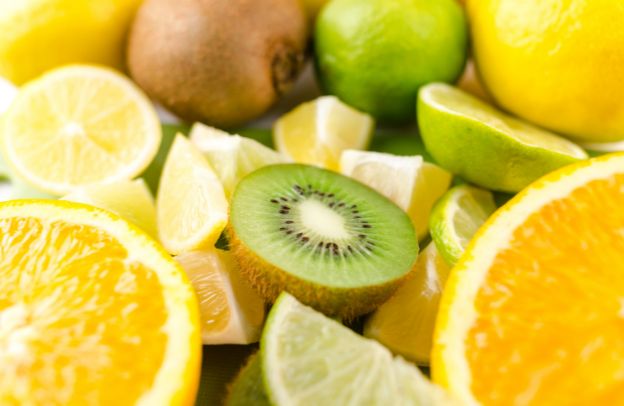Imagine if the key to a better mood enhanced mental wellness, and sharper cognitive function lay in the foods you eat. The intriguing world of gut health and the brain reveals that our dietary choices can significantly impact our mental and emotional well-being. In this article, we’ll delve into the fascinating connection between gut health and the brain, with a particular focus on African nutrition and natural remedies.
For those intrigued by holistic well-being and interested in exploring African dietary traditions, this journey promises insights, inspiration, and actionable tips to boost your gut and brain health. Are you ready? Then let’s get started.
Understanding the Gut-Brain Connection
The gut-brain axis is a complex network connecting the gastrointestinal system to the brain. This bidirectional communication pathway influences everything from mood and emotions to cognitive function. Recent research highlights the critical role the gut plays in maintaining optimal brain health.
Consider checking out “The gut-brain axis: interactions between enteric microbiota, central and enteric nervous systems”, available at the US National Library of Medicine.
The Role of Microbiota in Gut Health: The gut is home to trillions of microorganisms collectively known as the gut microbiota. These microorganisms play a crucial role in digestion and overall health. More importantly, they influence the gut-brain axis, affecting your mood and cognitive abilities.
Impact of Diet on Gut Microbiota Composition: Diet is one of the most significant factors influencing the composition of your gut microbiota. Consuming a diet rich in diverse, plant-based foods can promote the growth of beneficial bacteria while reducing harmful ones. This, in turn, can positively impact your mental wellness and cognitive sharpness.
Significance of Gut Health for Mood, Mental Wellness, and Cognitive Sharpness: Poor gut health has been linked to various mental health issues, including anxiety, depression, and cognitive decline. A healthy gut, on the other hand, can enhance your mood, reduce stress, and improve cognitive function.
African Nutrition Traditions and Gut Health
Africa boasts an incredibly diverse range of diets influenced by geography, culture, and tradition. From the Mediterranean-influenced North African cuisine to the plant-heavy diets of West Africa, these traditions offer a wealth of gut-healthy foods.
Fermented Foods in African Cuisine: Fermented foods are a staple in many African diets. Examples like injera from Ethiopia and ogi (pap) from Nigeria not only add unique flavors to meals but also support a healthy gut. Incorporating these foods into your diet can promote the growth of beneficial gut bacteria.
Indigenous African Herbs and Remedies
African cultures have long relied on indigenous herbs and remedies to address various health concerns, including gut health. Herbs like ginger, turmeric, and moringa have been found to have gut-boosting properties. Learning about and incorporating these herbs into your diet can be a game-changer for gut health.
The Science Behind African Nutrition
Modern science is beginning to validate the health benefits of many African superfoods. Research on ingredients like baobab fruit, African yam, and hibiscus reveals their potential to improve gut health and, consequently, brain function.
To learn more about these, you can consider checking out “The African Food System and Its Interactions with Human Health and Nutrition”, a work edited by Per Pinstrup-Andersen and available at Jstor.org. You can also check out the article: “What Is the African Heritage Diet?”, available at Eatingwell.com.
African Plant-Based Diet and its Impact on Gut Health
Plant-based diets are a hallmark of many African culinary traditions. These diets are rich in fiber, antioxidants, and anti-inflammatory compounds, all of which support a healthy gut and brain.
Practical Tips for Incorporating African Nutrition into Your Diet
Easy Ways to Integrate Fermented Foods: Incorporate fermented foods like kimchi, kefir, or African options like injera and ogi into your meals to promote gut health. Start with small servings and gradually increase them.
Incorporating African Herbs and Spices: Experiment with African herbs and spices like ginger, turmeric, and moringa in your cooking. Add them to soups, stews, or even smoothies for an extra gut-boosting punch.
Balanced African Diet Plans: Explore balanced African diet plans that include a variety of fruits, vegetables, whole grains, and lean proteins. Experiment with recipes from different regions to diversify your gut microbiota.
Dietary Considerations for Gut Health: Pay attention to dietary considerations like staying hydrated, avoiding excessive sugar and processed foods, and practicing portion control to support your gut health.
African Nutrition for a Global Audience
In an increasingly interconnected world, the exploration of African nutrition takes on a profound significance. African dietary traditions, characterized by a rich fabric of locally sourced ingredients and time-tested culinary techniques, offer a holistic approach to nourishment that can be embraced by people from diverse cultural backgrounds.
By delving into the heart of these traditions, we not only uncover the potential to address global health challenges but also promote culinary diversity, sustainability, and a deeper appreciation for the relationship between food and well-being.
Conclusion
In conclusion, the intricate connection between gut health and the brain is a fascinating frontier in the field of neuroscience and nutrition. As we’ve explored in this article, our dietary choices play a pivotal role in shaping not only our physical well-being but also our mood, mental wellness, and cognitive sharpness.
As we move forward, we must continue to explore this intricate relationship, seeking answers that may pave the way for innovative dietary interventions to improve mental health. Adopting a diet rich in fiber, prebiotics, probiotics, and a variety of nutrients will not only promote gut health but also nurture a vibrant, resilient brain.
Moreover, a holistic approach to well-being that integrates nutrition, mindfulness, and exercise can enhance our overall quality of life.








Thank you for your sharing. I am worried that I lack creative ideas. It is your article that makes me full of hope. Thank you. But, I have a question, can you help me?
Thanks for sharing. I read many of your blog posts, cool, your blog is very good.